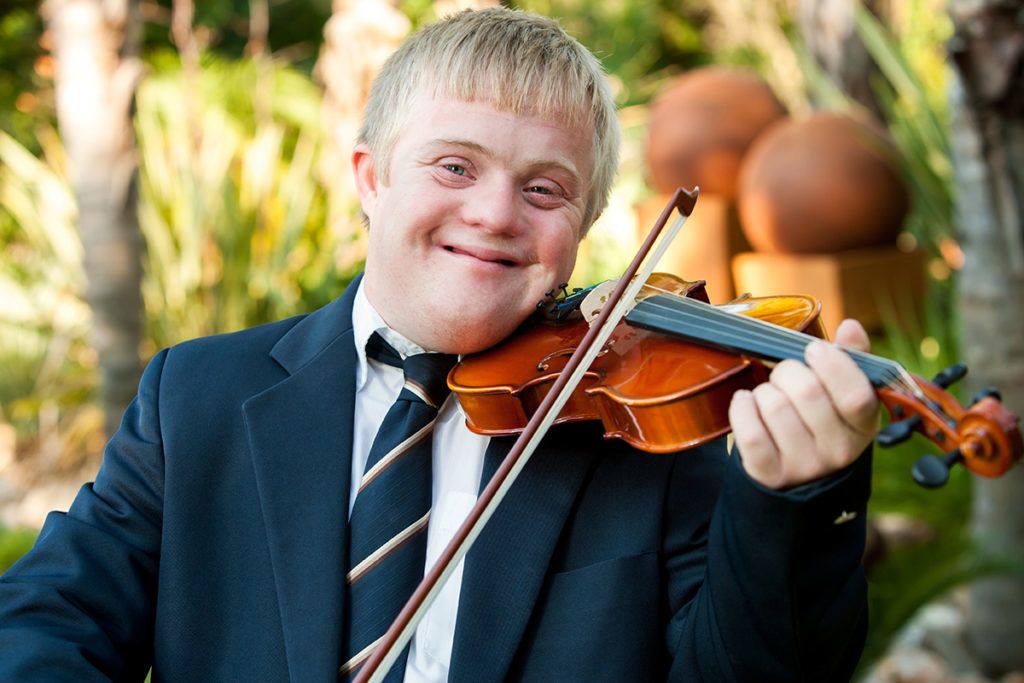Here’s How to Help Your Special Child Grow into an Independent Adult
Updated on March 11, 2024
A post by AngelSense, a GPS & voice monitoring solution designed for children with special needs.
Learn more about how AngelSense’s GPS tracking solution can help improve your child’s safety and well-being.
You probably think about your little one’s future more than you’d like to admit. But like most special needs parents, you don’t have the time to plan or entertain what-ifs and maybes. You’re too busy dealing with to-do lists and the reality of your child’s sensory processing disorder to think about their future. What will become of your little one?
Most special needs parents are concerned about their child’s future employment and financial stability. They worry what their child’s quality of life will be like when they make the transition into adulthood. In fact, a recent study of over 1,600 special needs parents found that the majority of parents are very concerned about their child’s ability to live as independent adults.

While this can be a stressful phase, the good news is that there are things you can do now to start preparing your child for adulthood. While most special needs children may not go to college or move into their own apartment, with enough preparation they can become productive members of their society.
Here are some tips from the AngelSense community for preparing your child for this exciting new stage in life.
1. Develop self-care skills from an early age
Interestingly, research suggests that children with autism who were taught self-care skills from an early age including brushing teeth, cleaning and meal preparation are more likely to find and keep a job. This is very encouraging news for parents as these skills can be taught from a young age.
“While we can’t change intellectual functioning, these skills are something very practical that we can work on to try and improve the prospects of adults with autism,” explained Laura Klinger, an associate professor at the University of North Carolina.
2. Make sure you’re included in the Individualized Education Program
The Individualized Education Program (IEP) is a document for your child’s teacher which will help educators reach specific education goals. This can also help make the transition into adulthood less stressful. The IEP will outline your child’s unique educational program, ensuring that your child’s specific needs are met.
Included in the IEP is a list of your child’s educational goals and services, relevant activities as well as performance and progress monitoring. The IEP is an integral part of your child’s transition into adulthood, and will ensure your child has the necessary skills to live as independent a life as possible.
3. Get a transition plan
Included as part of the Individualized Education Program (IEP) is the transition plan. This is a plan which you and your child will develop in collaboration with your child’s school. It’s covered as part of the Individuals with Disabilities Education Act.
Ideally, you should start working on this before your child reaches high school. The plan is designed to help your child navigate the many tough decisions they’re likely to encounter as adults, and will help them prepare for independent living and employment.

This transition plan will generally be included as part of your child’s IEP, and it’s the school’s responsibility to ensure your child achieves those specific transition goals. Developing the transition plan is time-consuming and involves multiple interviews with the school. You’ll also be required to complete a questionnaire about your child’s skills and abilities.
The process can be overwhelming for a child with special needs so it’s a good idea to prepare your little one in advance. We recommend that you start by setting up a weekly meeting with your child to discuss their future and career options. This will prepare and encourage them to start thinking about the transition. Here’s a useful resource to help you better understand the process.
4. Focus on your child’s skills
When considering employment options for your child with autism, a good place to start is by evaluating your child’s skillset. This could include anything from money management and grocery shopping to house maintenance. While it is important to focus on skills and abilities that can be used to generate an income, don’t forget to consider what makes your child happy. It’s always a good idea to involve your child and see what their career aspirations are.
Finding a job as a young adult with autism can be daunting. Most young adults on the spectrum tend to be either unemployed or underpaid. It’s estimated that only 20 percent of these adults are employed full-time, making on average $8 per hour. Despite this, things are looking up for youngsters with autism as more and more companies open their doors to special employees. These companies include Microsoft, SAP, Walgreens and Freddie Mac.
5. Be aware of your rights
It’s important to know what services and government programs your special needs child is entitled to. These can provide you with invaluable assistance and will alleviate some of the stress. It’s good to know about the Rehabilitation Act which protects the civil right of people with disabilities as they relate to employment and public accommodations. There is also the Americans with Disabilities Act which prohibits discrimination and exclusion of people with disabilities. It also states that people with disabilities have the right to have public facilities made accessible to them.
6. Start early
By involving your child in household activities and encouraging them to be independent from a young age, you can help them build skills necessary for adulthood. You may also consider encouraging your child to volunteer or take on an internship. This will not only teach your child to be more independent, but it’s a great way to build important life skills.
How AngelSense Helps With Transitions Into Adulthood
AngelSense GPS does more than just offer maximum safety during childhood. It helps allow parents to provide more freedom and independence to their children without compromising safety. Once they are ready to go out into the world more on their own, their confidence soars and there is more trust established. Learn more about AngelSense Independence, and Employment.
Get peace of mind from AngelSense, the groundbreaking AI-based assistive technology designed to enhance safety and peace of mind for individuals with special needs and their families. Our solution ensures you stay connected with your loved ones, empowering a higher level of independence while maintaining safety. Learn more about how AngelSense can make a difference for your family.

I agree– one of the most important ways to make sure that your special needs child grows up to have independence is to make sure they hone in on their strengths and self-care skills when they are young. This will teach them to have more strength and independence for sure. I like that advice about the transition plan as well.
I want to make sure that I’m ready for my son do be an adult. It makes sense that I would want to teach him self-care skills from an early age! That way I won’t have to worry about him not being able to take care of himself.
Try AngelSense Risk Free
FREE DEVICE
See PlansSession Changed
Your session has changed. Please close this tab.